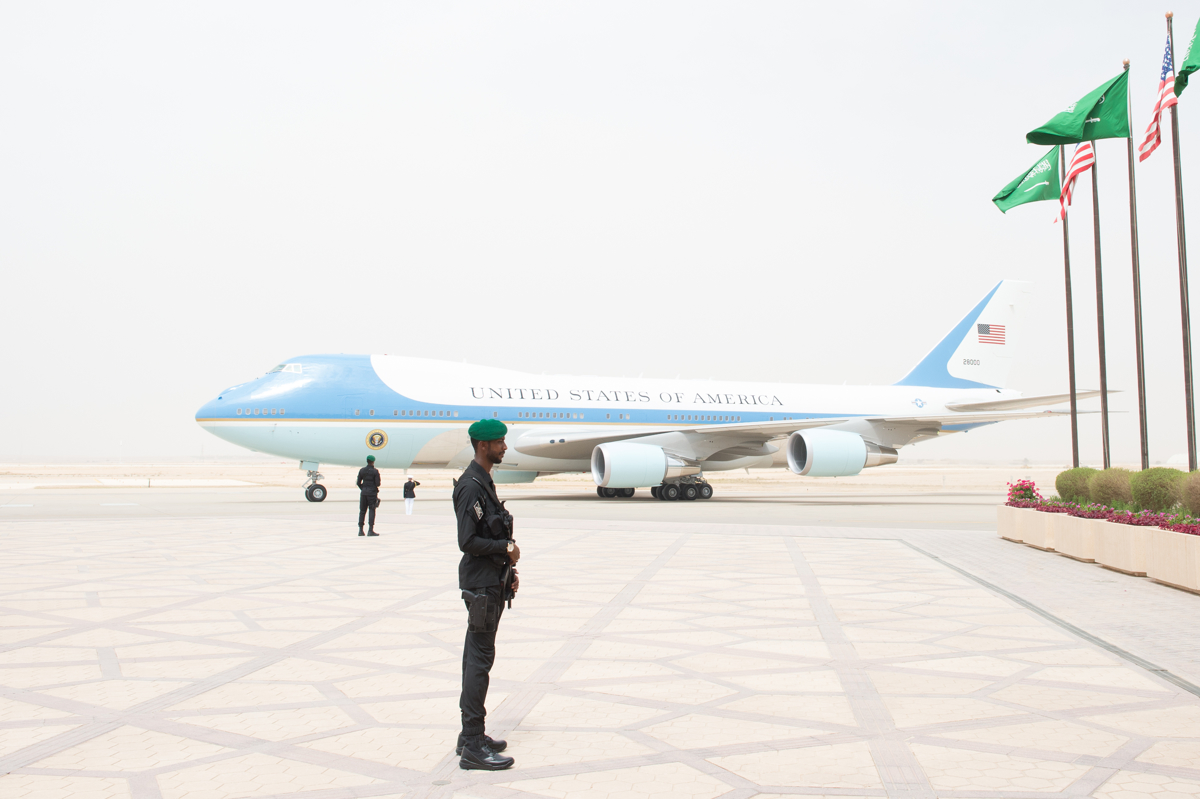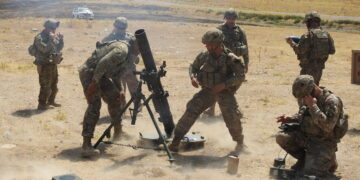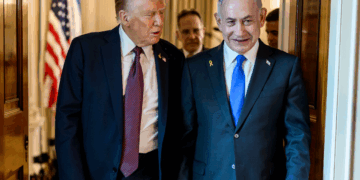Home / Grand strategy / Against U.S. military strikes on behalf of Saudi Arabia
September 18, 2019
Against U.S. military strikes on behalf of Saudi Arabia

Vital U.S. interests in the Middle East are narrow
- Preventing significant, long-term disruptions to global oil supply.
- Eliminating anti-American terrorists with the capability and intent to attack the U.S.
The attacks on Saudi Arabia’s oil facilities do not meaningfully impact U.S. interests or justify a military response
- The strike temporarily disrupted approximately 50 percent of Saudi Arabia’s oil production (5 percent globally) but will have no long-term impact on energy markets. Production is already at 70 percent of pre-strike levels and will reach full capacity in weeks.
- Iran likely provided support for the attacks and is potentially directly responsible. However, this attack targeted the Kingdom of Saudi Arabia, not the U.S.
- While a troublesome actor, Iran is a middling power. Tehran cannot project conventional power beyond its borders. Its network of proxies and its missile arsenal are meant to compensate for that weakness.
- Any U.S. military response would likely escalate into a costly regional war that would harm the U.S. and our friends. Iran is larger and much more populous than Iraq and has invested in asymmetric capabilities designed to raise the cost for attackers.
Origins of the current crisis and realistic policy responses that serve U.S. interests
- Maximum pressure: U.S. sanctions are strangling Iran’s economy but rather than capitulate, Iran is responding with increased belligerence—lashing out in increasingly risky ways to ensure “maximum pressure” is not cost-free for the U.S. Fewer resources are available for Iran’s proxies, but they are compensating with greater aggression, as these attacks indicate.
- Policy response: Maximum pressure has created the conditions that precipitated this crisis. Unwinding maximum pressure would de-escalate this crisis and reduce the risk of war, which serves U.S. interests. Iran has (1) increased its malign activity and (2) restarted its nuclear weapons program because it cannot sell oil. The U.S. could propel diplomacy by providing an escalation off-ramp, such as providing waivers to our European allies to buy oil from Iran.
- Saudi-led war in Yemen: The highly destructive, four-year long war on Yemen’s Houthis by a Saudi-led coalition is a manifest failure and a humanitarian crisis. The Houthis remain entrenched and are increasing their direct attacks on Saudi Arabia. Washington—starting with President Obama and continuing under President Trump—has provided U.S. military support to the Saudi-led coalition despite the passage of congressional legislation attempting to end it.
- Policy response: Washington should end all U.S. military support to the Saudi-led effort in Yemen, which will apply pressure on the Kingdom to resolve the conflict politically.
- Sunni-Shiite power struggle: Saudi Arabia and Iran are engaged in a fierce competition for influence in the Middle East. But neither nation is powerful enough to dominate the region. Washington has supported Saudi Arabia while seeking to undermine Iran.
- Policy response: Tehran and Riyadh are both autocratic regimes undeserving of unconditional U.S. support. The U.S. shouldn’t underwrite either side in what is essentially an internal conflict between Islam’s two main branches. A balance of power in which both nations are checked by the other best serves U.S. interests.
Even a limited U.S. strike could escalate into all-out war
- Iran would respond to any U.S. military strike. This could escalate into full-blown war. While weak, Iran or its proxies could cause more disruptions to energy markets or lash out in other ways, including targeting U.S. ground forces.
- Persian Gulf nations account for roughly half of global oil reserves. A war in the region would increase the frequency and number of attacks on oil installations, further disrupting energy markets. Iran accounts for almost 10 percent of the world’s oil reserves—destroying Iranian energy infrastructure would itself spike oil prices.
- U.S. military strikes on Iran would also damage, if not end, chances Tehran would negotiate limits on its nuclear weapons program.
- Saudi Arabia is not a U.S. treaty ally and should not be treated as one. Fighting Saudi Arabia’s war with Iran for it will only incentivize the Saudis to continue pursuing ill-advised policies, whose cost is then outsourced to the U.S.
- The U.S. should not clean up Saudi Arabia’s foreign policy mistakes, and the U.S. military should not serve as the Kingdom’s defense force. Saudi Arabia spends more than five times what Iran does on its military and has purchased an extensive arsenal of modern U.S. weaponry. It should defend itself.
More on Middle East

In the mediaCounterterrorism, Middle East
Featuring Daniel DePetris
October 8, 2025
Events on Grand strategy

virtualSyria, Balance of power, Basing and force posture, Counterterrorism, Middle East, Military analysis
February 21, 2025






